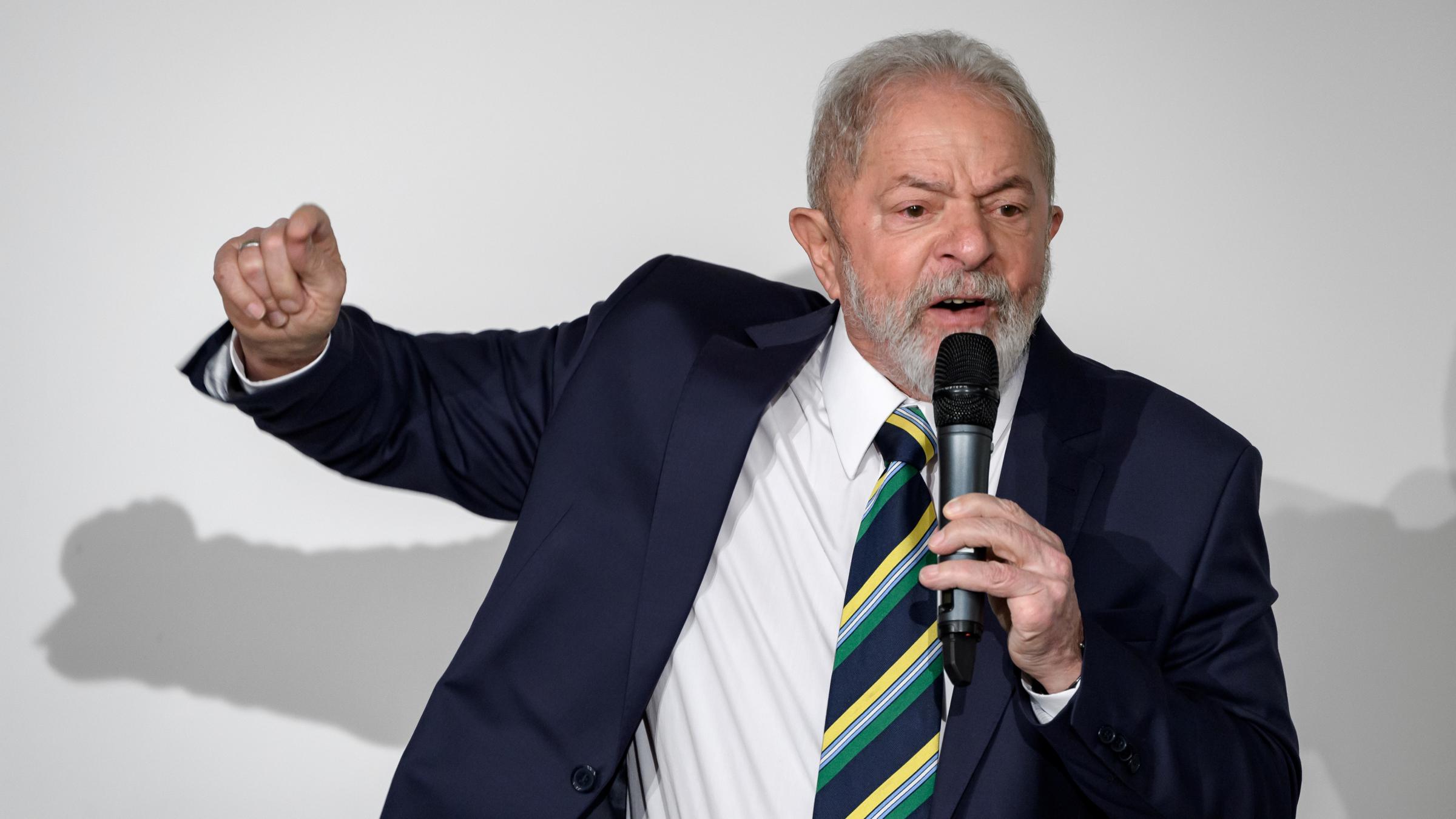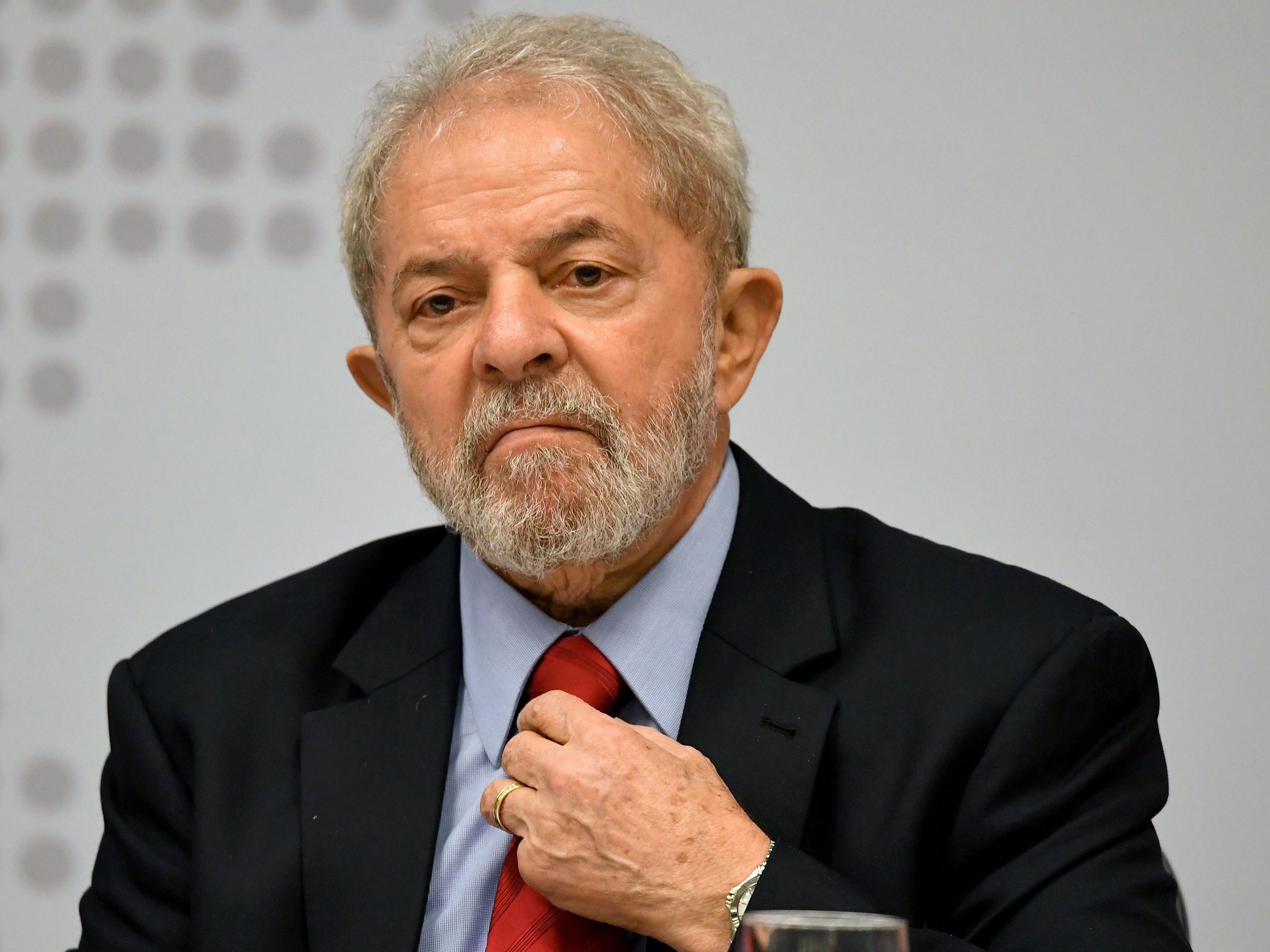Hugo Motta Anistia: Former Brazilian Minister Pardoned After Corruption Conviction
Source: www.wishtv.com
Hugo Motta Anistia: Former Brazilian Minister Pardoned After Corruption Conviction

Pakistani court suspends the corruption conviction and sentence of - Source www.courthousenews.com
Hugo Motta Anistia: Former Brazilian Minister Pardoned After Corruption Conviction
Editor's Notes: Hugo Motta Anistia: Former Brazilian Minister Pardoned After Corruption Conviction have published today; 31 December 2022. Understanding Hugo Motta Anistia have lots of benefits to make right decision on this pandemic.
To help our audience make the right decision, our team has done some analysis, digging information, made Hugo Motta Anistia: Former Brazilian Minister Pardoned After Corruption Conviction guide to help our user make the right decision.
Key differences or Key takeways provided in informative table format.
Transition to main article topics.
FAQ
This section addresses frequently asked questions (FAQs) regarding the pardon granted to former Brazilian Minister Hugo Motta after his corruption conviction.
Question 1: What were the charges against Hugo Motta?
Motta was convicted of corruption and money laundering charges stemming from a scheme involving the misuse of public funds.
Question 2: What was the basis for Motta's pardon?
President Jair Bolsonaro pardoned Motta under Article 84 of the Brazilian Constitution, which empowers the president to grant pardons in certain circumstances.
Question 3: What are the implications of Motta's pardon?
Motta's pardon has been widely condemned by legal experts and civil society groups, who argue that it undermines the rule of law and sets a dangerous precedent for impunity.
Question 4: What is the public reaction to Motta's pardon?
The pardon has been met with widespread anger and frustration among the Brazilian public, who view it as a betrayal of their trust and a disregard for justice.
Question 5: What are the potential consequences of Motta's pardon for the fight against corruption in Brazil?
Motta's pardon sends a negative message to those who are considering engaging in corrupt activities, as it suggests that they may be able to escape punishment through political connections or influence.
Question 6: What legal challenges could arise from Motta's pardon?
Legal experts have stated that Motta's pardon may be subject to legal challenges, as it could be argued that it violates the principle of equality before the law.
The pardon of Hugo Motta has raised significant concerns about the rule of law and the fight against corruption in Brazil. The implications of this decision are likely to be felt for years to come.

Pakistani court suspends the corruption conviction and sentence of - Source wtop.com
Transition to the next article section.
Tips
Hugo Motta was a former Brazilian minister who was convicted of corruption. He has recently been pardoned by President Jair Bolsonaro. This has sparked outrage among many Brazilians, who believe that Motta should be held accountable for his crimes. There are a number of tips that can be learned from this case to improve the effectiveness of the Brazilian justice system including:
Tip 1: Strengthen the independence of the judiciary. The Brazilian judiciary has been criticized for being corrupt and inefficient. This has made it difficult to prosecute corrupt politicians and other powerful individuals. To improve the situation, the government should take steps to strengthen the independence of the judiciary. This could include increasing the salaries of judges and providing them with more resources.
Tip 2: Increase transparency. The Brazilian government has been criticized for being opaque and secretive. This has made it difficult for the public to hold the government accountable for its actions. To improve the situation, the government should take steps to increase transparency. This could include making more information about government activities available to the public and reducing the use of secrecy laws.
Tip 3: Strengthen anti-corruption laws. The Brazilian anti-corruption laws are weak and ineffective. This has made it easy for corrupt politicians and other powerful individuals to evade prosecution. To improve the situation, the government should strengthen the anti-corruption laws. This could include increasing the penalties for corruption and making it easier to prosecute corrupt individuals.
Tip 4: Educate the public about corruption. Many Brazilians are not aware of the extent of corruption in their country. This makes it difficult to build public support for efforts to combat corruption. To improve the situation, the government should take steps to educate the public about corruption. This could include launching public awareness campaigns and providing more information about corruption in schools.
The Hugo Motta case is a reminder that corruption is a serious problem in Brazil. The government needs to take steps to strengthen the justice system and increase transparency. By working together, Brazilians can create a more just and equitable society. Hugo Motta Anistia: Former Brazilian Minister Pardoned After Corruption Conviction
Summary of key takeaways or benefits:
- A strengthened judiciary can prosecute corrupt politicians and other powerful individuals.
- Increased transparency makes it harder for the government to hide its actions.
- Stronger anti-corruption laws make it easier to prosecute corrupt individuals.
- An educated public is more likely to support efforts to combat corruption.
Transition to the article's conclusion:
By taking these steps, Brazil can create a more just and equitable society.
Hugo Motta Anistia: Former Brazilian Minister Pardoned After Corruption Conviction
The pardon granted to Hugo Motta by President Jair Bolsonaro sparked significant debate and highlighted several key aspects related to corruption, justice, and political dynamics in Brazil.
- Political Implications: The pardon raised questions about the influence of political connections in the justice system.
- Legal Precedent: The decision set a concerning precedent, potentially weakening the fight against corruption.
- Public Trust: The pardon eroded public trust in the government's commitment to accountability.
- International Reputation: The event damaged Brazil's reputation as a nation committed to combating corruption.
- Judicial Independence: The pardon raised concerns about the independence of the judiciary from political interference.
- Selective Justice: Critics argued that the pardon was a form of selective justice, benefiting politically connected individuals.
The case of Hugo Motta highlighted the complex interplay between politics, justice, and corruption in Brazil. The pardon raised serious questions about the rule of law and the commitment to fighting impunity for corrupt practices. It remains to be seen whether the pardon will have long-term consequences for Brazil's efforts to combat corruption and ensure accountability in public office.

Brazil Supreme Court Justice Annuls Corruption Conviction Against - Source news.wjct.org

People Pardoned After Their Executions - Business Insider - Source www.businessinsider.com
Hugo Motta Anistia: Former Brazilian Minister Pardoned After Corruption Conviction
The connection between "Hugo Motta Anistia: Former Brazilian Minister Pardoned After Corruption Conviction" represents the broader issue of corruption and impunity within the Brazilian political system. Motta's pardon by President Jair Bolsonaro has sparked outrage among anti-corruption activists and raised concerns about the weakening of accountability for public officials. The case highlights the importance of upholding the rule of law and ensuring that those who engage in corrupt practices are held responsible.

Former Brazilian President Lula Convicted Of Corruption, Sentenced To - Source kuow.org
Motta was convicted in 2019 of embezzlement and money laundering related to a scheme involving the misuse of public funds. His pardon has been widely criticized as an affront to justice and a setback in the fight against corruption. It has also raised questions about the independence of the judiciary and the commitment of the current administration to combating corruption. This case underscores the need for strong institutions and effective mechanisms to prevent and punish corruption in order to maintain public trust and promote good governance.
The pardon granted to Hugo Motta has sparked controversy and raised questions about the commitment of the Brazilian government to fighting corruption. The decision has been met with criticism from anti-corruption activists and has raised concerns about the weakening of accountability for public officials. The case highlights the importance of upholding the rule of law and ensuring that those who engage in corrupt practices are held responsible.
Table: Key Points
| Key Point | Description |
|---|---|
| Corruption and impunity | Motta's pardon highlights the broader issue of corruption and impunity within the Brazilian political system. |
| Weakening of accountability | The pardon has raised concerns about the weakening of accountability for public officials. |
| Importance of upholding the rule of law | The case emphasizes the importance of upholding the rule of law and ensuring that those who engage in corrupt practices are held responsible. |
Conclusion
In conclusion, the case of Hugo Motta's pardon has exposed the challenges in addressing corruption within the Brazilian political system. It underscores the need for continued efforts to strengthen institutions, promote transparency, and foster a culture of accountability. The fight against corruption requires a concerted effort from all stakeholders, including the government, civil society, and the judiciary, to ensure that those who abuse their power are held responsible.
The pardon granted to Hugo Motta has raised important questions about the commitment of the Brazilian government to fighting corruption. The decision has been met with criticism from anti-corruption activists and has raised concerns about the weakening of accountability for public officials. The case highlights the importance of upholding the rule of law and ensuring that those who engage in corrupt practices are held responsible.
Maple Leafs And Kraken Clash In NHL Battle For Standings Supremacy, Paula White: Televangelist, Trump Spiritual Adviser, And Controversial Leader, Brest Vs PSG: Champions League Preview And Betting Tips, Guarany De Bagé: A Time-Honored Tradition Of Brazilian Beer Excellence, Taylor Swift's Record-Breaking Grammy Awards: A Comprehensive Timeline, 5th Of February: Historical Significance And Celebrations, Pioneer: Unparalleled Innovation In Audio And Video Entertainment, Besiktas Triumphs Over Kırklarelispor In Thrilling Football Encounter, Democrata X Pouso Alegre: Highlights, Stats, And Betting Odds, Brasiliense Vs. Capital: Rivalry Unfolds In The Brazilian Capital's Football Arena,